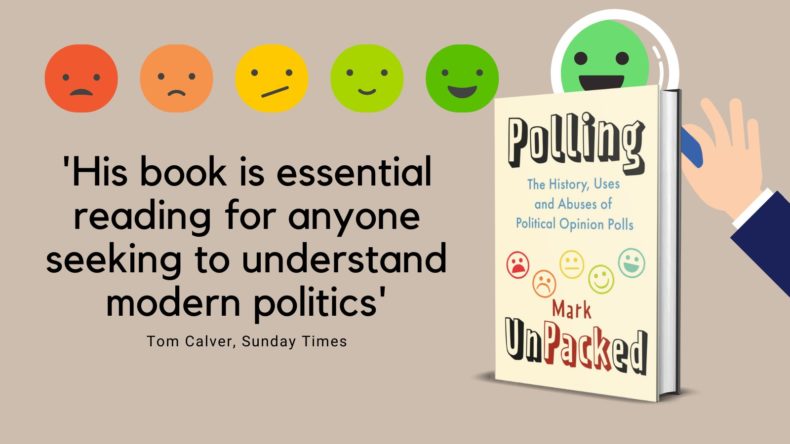No, opinion polls shouldn’t be banned
As the idea of banning opinion polls during elections is being discussed, here’s what I wrote in my polling book about why no, they shouldn’t be banned:
‘The effect of the Bill would be rather like banning meteorologists from forecasting the weather a week before a garden party in case anyone might be put off from going.’ Member of Parliament debating a bill to ban polls…
Critics of polling bans have several counter-arguments. One is that it is wrong to say the polls are wrong – they are pretty good in practice, as we have seen. What is more, banning good information leaves the field open to bad information. Rather, the more good-quality information voters have, the better. If voters want to use good information on the relative support for parties or candidates to help decide how to vote, who are you or I to tell them they should not?…
Another argument is one of practicality. Banning public polls does not stop polling happening, and ofen leaking via the Internet. All bans do is restrict polling to those who can afford it, such as hedge funds who can make large sums of money by predicting election results accurately. The rich are able to circumvent polling bans while ordinary people are left with inferior information.
Polls – especially, but not only, exit polls – also safeguard against fraud, giving a public yardstick against which to judge election results.
A final argument against polling bans is that being able to conduct a poll just before polling day is crucial for the health of political polling overall. It is those late polls which can be most usefully compared against actual election results and so can show up problems in polling methodology. Without such checks, political polling is working blind.
More, including the story of the politician who was the first to try to regulate opinion polls through legislation in the book.
Get the essential polling book

The fault in opinion polls lies primarily not in the polls themselves but in the (intellectually) dishonest journalists who write stories about them and their equally dishonest editors who encourage them to do so. If there has been a story of this election (and indeed of the period since Rishi Sunak became Prime Minister) it has been that the opinion polls have found the Labour VI to be remarkably constant, whilst the Conservative VI has declined steadily. Since the calling of the election and the increased publicity for the minor parties, both Labour and Conservative VI have declined; an inevitability as the sum of VI for all parties must be 100%.
If I am going to criticise opinion polls for anything, it is the opacity of their methodology. As they are sampling the same population (for most the GB public; for a few the UK public) the consistent differences between pollsters on average must be attributable to differences in their methodology, what they call “house effects”. It is apparent that these are rather larger than the effects of random sampling, which for sample sizes in the 1,000-2,000 range should be ±1.5% (the range within which we would expect 68% of independent samples of the same population to fall). The BPC could do all of us a service by commissioning their own poll and then giving the raw data to all the pollsters to process using their own methodology. Then we could really see how large “house effects” are.